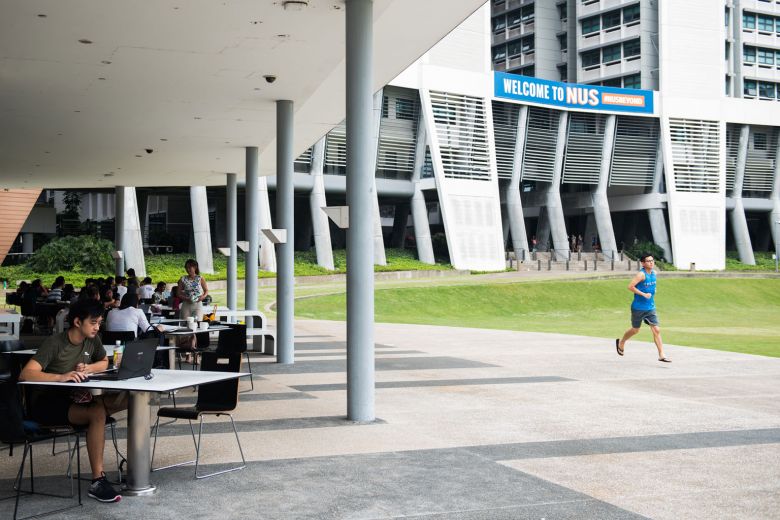Passion for a field of study will count for admission to the National University of Singapore (NUS) from this year.
Those applying for a place at NUS will be given 1.25 bonus points for their first choice – equivalent to going from C to B or B to A in an A-level H1 subject.
This applies only to courses where entry is based purely on converting a student’s grades into points, and not to courses such as medicine and law where students are assessed on their aptitude and interests through interviews.
NUS senior deputy president and provost Ho Teck Hua, who announced the move at a press conference on Monday, said NUS analysis of admission data showed the bonus point can make a difference.
“Let’s say one student with 81 points applies for communications as his first choice, and another with 82 points applies to the same course as his second choice. With the 1.25 points, the student who lists the course as his first choice will get ahead of the person with 82 points,” he said.
On why NUS decided on the move, he said: “If you have done well and are passionate about a career in business or computing, for example, then we want to say to you that we support your passion.”
Professor Ho revealed that, currently, 65 per cent of students given a place in their first-choice course take up the offer, while only 45 per cent of those given their second-choice course do so.
Noting NUS graduates’ good job prospects, Prof Ho also announced that NUS will be increasing the number of double majors to increase career options for its graduates.
“The nature of work is changing very rapidly, and we need to prepare students for a lifetime of diverse careers,” he said.
He said NUS, which currently offers 94 double major and major-minor combinations, will add another 86 such programmes. “Someone doing data science and entrepreneurship, for example, can go and work for a range of industries in data science, and also go and do a start-up.”
On top of the double majors, NUS also offers 71 double degrees, 33 joint degrees with partner universities and 24 concurrent degrees. Adding all this, currently 15 per cent of NUS students are trained in more than one discipline.
Prof Ho said he hopes half of all NUS students will graduate with knowledge and skills in two different fields, so they will have more job offers to choose from.
He also announced three new degree programmes for this year, including one in veterinary science.
Students taking up the 5 1/2-year concurrent veterinary degree programme will graduate with an NUS degree in life sciences and a Doctor of Veterinary Medicine from the University of Melbourne.
Prof Ho also revealed that the NUS Overseas Colleges programme will expand to Jakarta and Toronto.
NUS, which now offers 230 bond-free merit scholarships, will add 200 more scholarships for the new academic year.
Ms Geraldine Tan, 19, welcomed the move by NUS and said it is important for young people to get into a field that excites them. She said: “I really want to study business and maybe go on an overseas college stint as I want to start a social enterprise. Business courses are hard to get into, so I am hoping the bonus points will help me get the edge.”
Hwa Chong Institution student Hannah Ganesh, 18, said increasing double degree options is good as students can diversify their learning and “challenge themselves”.
Article & Photo from Sandra Davie


